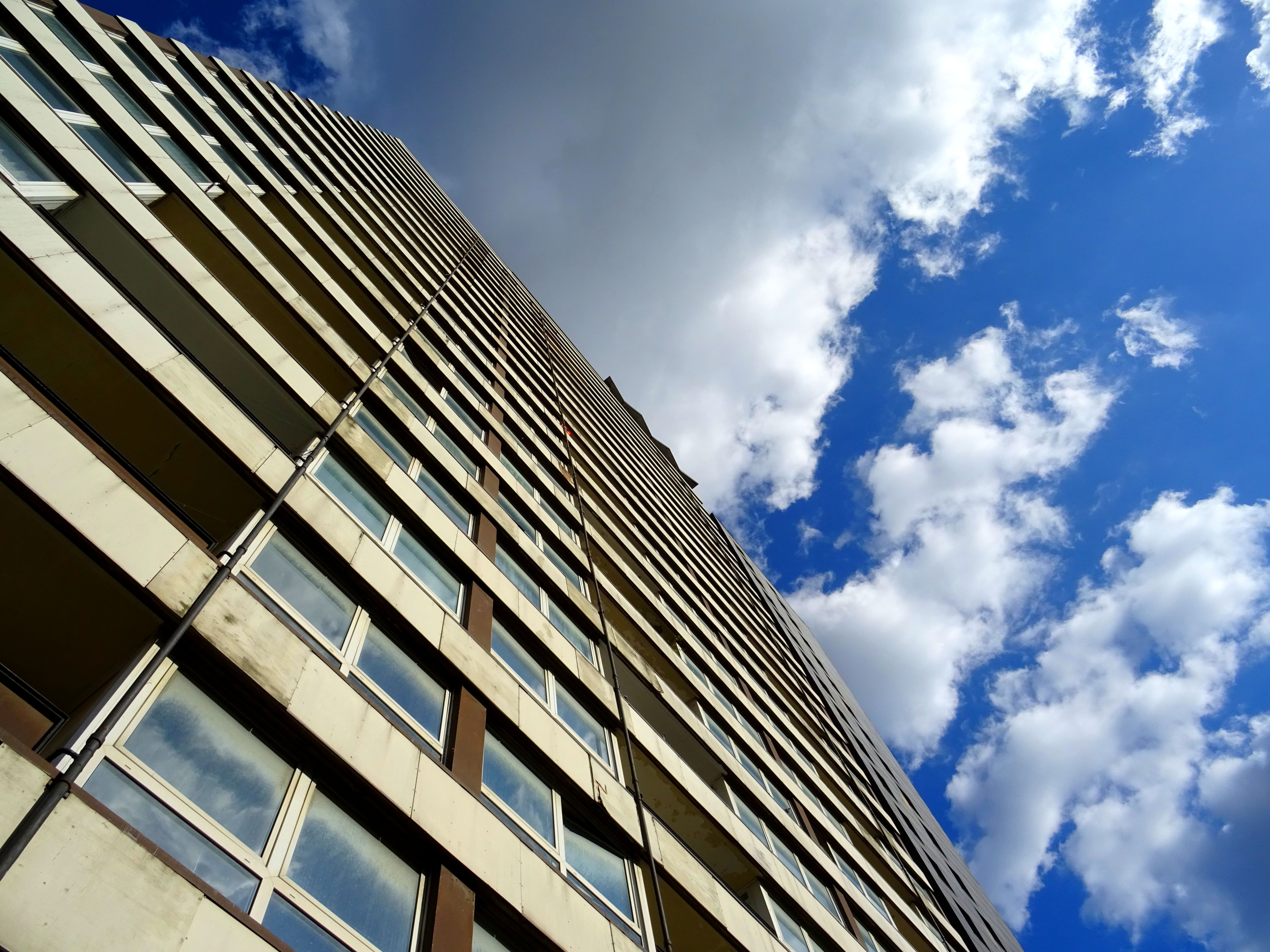there New building law Which will enter into force next Sunday, April 10, 2022, which will Changing the lives of residential units as well real estate transactions. all home sales They now have to include a statement from the owner about the condominium in order to carry out the act, similar to what happens with an energy certificate, for example.
at Condominiums have new operating rules Officials acquire new powers and obligations. new diploma (Law No. 2022 8 touching too Horizontal property constitution. For the Chairman of the Board of Directors of the Portuguese Association of Management and Administration Companies (APEGAC), there are both positive and negative points in this new condominium law.
Vitor Amaral considers that the effect of New building law “It wouldn’t be great for the real estate market.” at Interview with Ideal / Newsthe responsible person details the positive aspects of New building law He lists some criticism, noting that many of the changes “became below expectations and desirable.”
According to the condominium management specialist, “the legislator could and should have gone further,” in order to cover “other situations” that were not protected in Law No. 8/2022. Here is the opinion of the APEGAC leader about New building lawexplaining point by point, in a written interview with The Ideal/News, which can be read in full below.

Vitor Amaral, Chairman of the Board of Directors of the Portuguese Federation of Management Companies and Administration / EPIGAC
Advantages of the new law
- The fact that the ad Current condominium fees and debts that may be present. The buyer can waive the declaration, but as a result, he is responsible for paying all debts of the seller to the condominium;
- Residential unit fees that are due after part transfer are from Responsibility of the new owner;
- The possibility of permeability rule for Pay building fees They can be altered for the majority of the building’s total value, although this is not opposed. Until now, the law had required two-thirds of the building’s total value to be approved, also without opposition;
- Objectively determines that the reforms to Common parts for the exclusive use of a part, such as the roof terraces, is the responsibility of the condominium, unless the need for repair arises from a fact attributable to the owner having the use of that space;
- It becomes possible to use Email for correspondence between the administrator and the owner and vice versa;
- at condominium associations may be held, on the second call, half an hour after the appointed time, provided that the gifts, at that time, represent at least of the total value of the premises;
- The temporary regime, set up due to the Covid-19 pandemic, which allowed gathering by remote connection, is now finally enshrined in law;
- A greater duty of information to the owners of housing units than before condominium managerwhich is also obliged to file a claim for debt collection within 90 days of the first violation, provided that the value is equal to or greater than the social support index, which at this time is €443.20;
- The condominium It is always represented in court by the official, who is also able to file criminal complaints;
- effectiveness Joint Owners Association deliberations do not rely on signature and / or participation in the minutes, but only on their consent;
- Interest, arrears and financial penalties can now be included in enforcement actions for collection;
- Residential Unit Owners We are obligated to inform the responsible the tax identification number, address, phone and email contacts as well as inform the buyer identification items, in case of broken sale.

Many “unclear” actions
According to Vitor Amaral, “despite the large list of changes” considered positive by APEGAG, “many failed to achieve what was expected and desired”. “But what is worse is the fact that many of them are not clear and do not present Various interpretations and subsequent applications, with legal uncertainty It creates,” he warns.
Some of the criticisms pointed out by APEGAG
- In an article (1424 of the Civil Code – CC) it is stated that Building expenses It is the responsibility of the co-owners who own the fractions at the time the relevant decisions are made and in another Article (1424-a of CC) it is said that the obligation for debts is assessed according to the moment it had to be settled and that Building fees which ends after the transfer is the responsibility of the new owner, which seems to us to be a clear contradiction between the two rules, although the latter may be said to refer to cases of alienation;
- Article (1424 of the Criminal Code) which specifies that Maintenance repairs in common parts The exclusive use of a fracture is the condominium’s responsibility, as it tells us that this rule applies when it affects the common parts. Now, for example, in the case of roof terraces, the first thing to be affected when there is infiltration due to a lack of watertightness are the fractures immediately below them, which, in the literal interpretation, seems to be that in these cases, the repair was not to be supported by condominiums ;
- Rule (1431 of CC) mandating investigation in the first two weeks of January from Meetings to discuss and approve accounts With regard to the last year and the approval of the budget, an exceptional system has been established only for holding these assemblies in the first quarter of the year, but it is only exceptionally repeated. Now, it is both humanly and materially impossible for Building management company which has in its portfolio a few dozen housing units for holding ordinary assemblies in such a short period, which indicates that the legislature is completely unaware of the reality of this sector of activity. Doctrine and jurisprudence have come to the understanding that this rule is not mandatory, since it does not protect the interests of third parties, which means that there is nothing to prevent the joint owners from agreeing to the practice of condominiums that do not coincide with the calendar year. For example, if a condominium company’s fiscal year begins on May 1, that year ends on April 20, without violating any mandatory rule. The legislator could, and should, modify this rule to permit specific meetings of accounts to be held, within 90 days, or such other period, after the expiration of the exercise in question;
- Regarding the introduction of e-mail usability between owners and administrators and vice versa, although welcome, it is the most example of flawed modular construction, as it dictates that condominium owners Express their willingness to receive correspondence from the condominium via e-mail at the meeting, the e-mail address in question must be included in the minutes, which is personal data and, as such, may be considered a violation of General Data Protection Regulationwhen it is more simple, objective and unaccountable, for the co-owners to issue individual advertisements expressing this will and specifying the email address;
- With regard to e-mail also, the law states that joint owners issue a receipt for e-mails they receive, for example, with notifications and informing decisions. However, it does not set any deadline, or authorization, which leads to the following question: How long should an administrator wait to receive this receipt? If any joint owner does not issue Email receipt Do you consider yourself a summoner/a threat?
- It is planned that Subscribe to minutes by e-mail, but there is also no deadline for that subscription or any commission, which raises the same problem for the administrator, because he does not know how long to wait and what to do if he does not receive the subscription;
- In case Building assemblies through remote means of communication, the provisional regime provides that if it is impossible to implement it by these means, it must be carried out in the mixed form or in person. With this change, the possibility of holding the meeting in the mixed model has been eliminated, which is absurd, because it is the most used form of perception, since in most housing units there are always some owners who do not adhere to the component virtual reality, and in this way, the legislator eliminates the possibility of the participation of others at the Assembly without actually being present;
- The common reserve fund It defrays maintenance costs and aims to avoid deterioration of the building. However, the legislator now allows this fund to be used for another purpose, although it requires, without any compulsion, that it be returned within a maximum period of one year. It is certain that the law, by permitting this use, makes the Reserve Fund famous, which is already difficult to form, because there is no incentive for its constitution;
- Although commitment condominium owners Specifying their tax number, address and contacts of the administrator, does not stipulate any deadline or authorization, which makes the rule harmless, when there are thousands of implementations to proceed due to lack of knowledge of the tax number of the co-owners. In addition to coercion not to provide these items, the law must allow for condominium manager You have the legitimacy to obtain a Tax Identification Number (TIN) from the relevant financial services.

“The legislator could and should have gone further.”
The Chairman of the Board of Directors of the Portuguese Association of Management and Administration Companies (APEGAC) considers that “in addition to these criticisms worth pondering, the legislator It could, and should, have seized the opportunity to move forward with coverage of other cases.”
What situations should the new law cover as well?
- to impose an obligation Collective building insurance And not only fire insurance, which is the only mandatory insurance. The manner in which the law permits the realization of individual, mixed or group insurance, when the former causes great difficulty in managing whenever an accident occurs in the common parts;
- in order to stimulate Do maintenance and even adaptation For news power requirementswith national goals to be met in the short and medium term, lines of credit must be established for housing units, without imposing the consent of all housing unit owners, making any request for financing impractical, as well as applying the minimum reduced value-added tax rate for these businesses and amendments ;
- It must be mandatory to create More security For the nearly five million Portuguese people who live in condominiums, a condominium manager must take out professional civil liability insurance;
- at Building billsWhich are a big source of tax evasion, should be brought up, even for a brief period, to the IRS.

“Wannabe internet buff. Future teen idol. Hardcore zombie guru. Gamer. Avid creator. Entrepreneur. Bacon ninja.”

